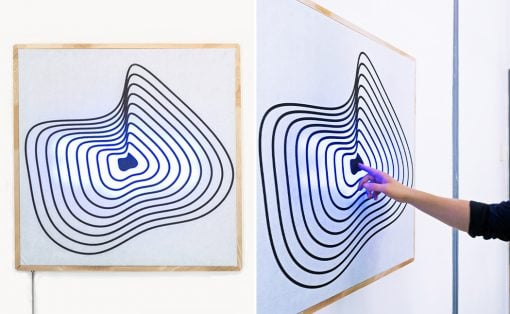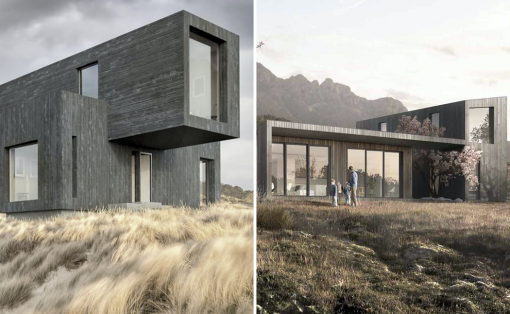
The Johnson Owl Deck Pavilion is a simple mass-timber pavilion constructed by architect Jesús Vassallo and a team of graduate students at Rice University on the Houston campus. The pavilion was built using cross-laminated timber (CLT) panels to convey how potent the material is as a carbon-negative and sustainable building method and can serve a specific function. “We wanted to design a building that would be true to CLT’s structural behavior and aesthetic potential,” said Vassallo. “Nowadays mass timber buildings are increasingly normative and based on repetitive grids that while efficient from an economic standpoint, do not do justice to the versatility of the material.”
Designer: Jesús Vassallo
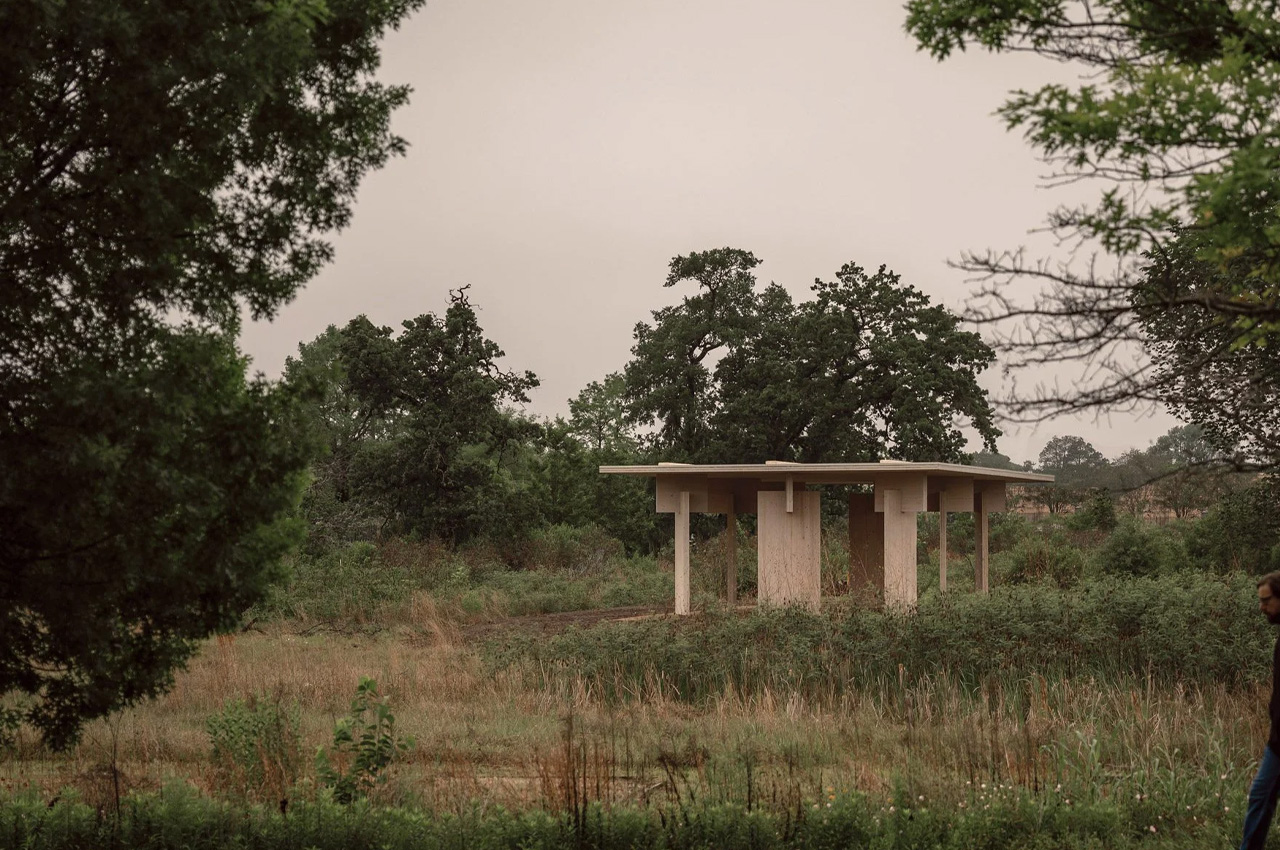
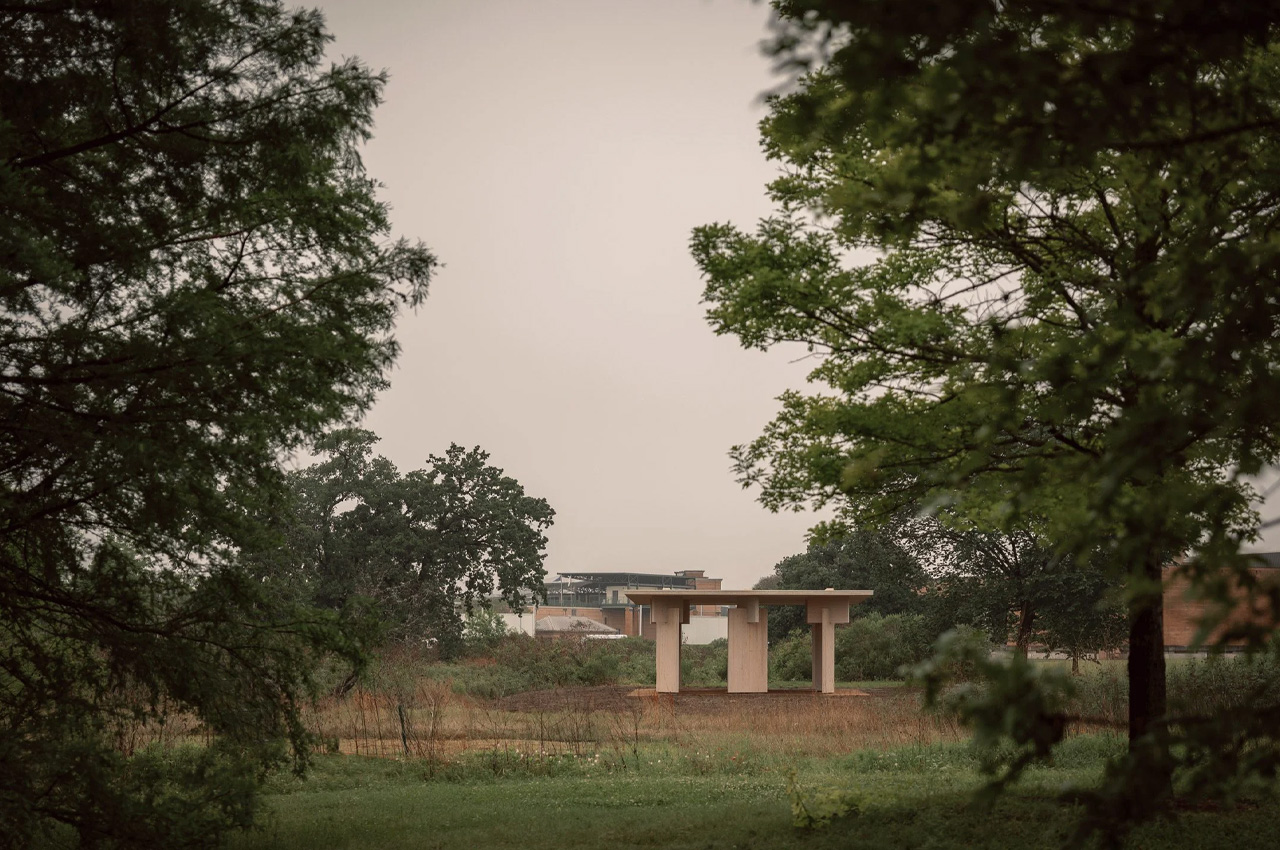
The timber pavilion is located in the university’s Harris Gully Natural Area, a restored watershed to which a large variety of high-level bird species are attracted. Occupying 1000 square meters, the pavilion is made of eight rectangular columns topped off with a single square, and a flat roof. The pavilion has an extremely simple, minimal, and rustic appearance. The columns and roof of the pavilion were built using CLT panels of southern yellow pine. The panels are in their ‘purest’ form, and they display the material’s easy assembly.
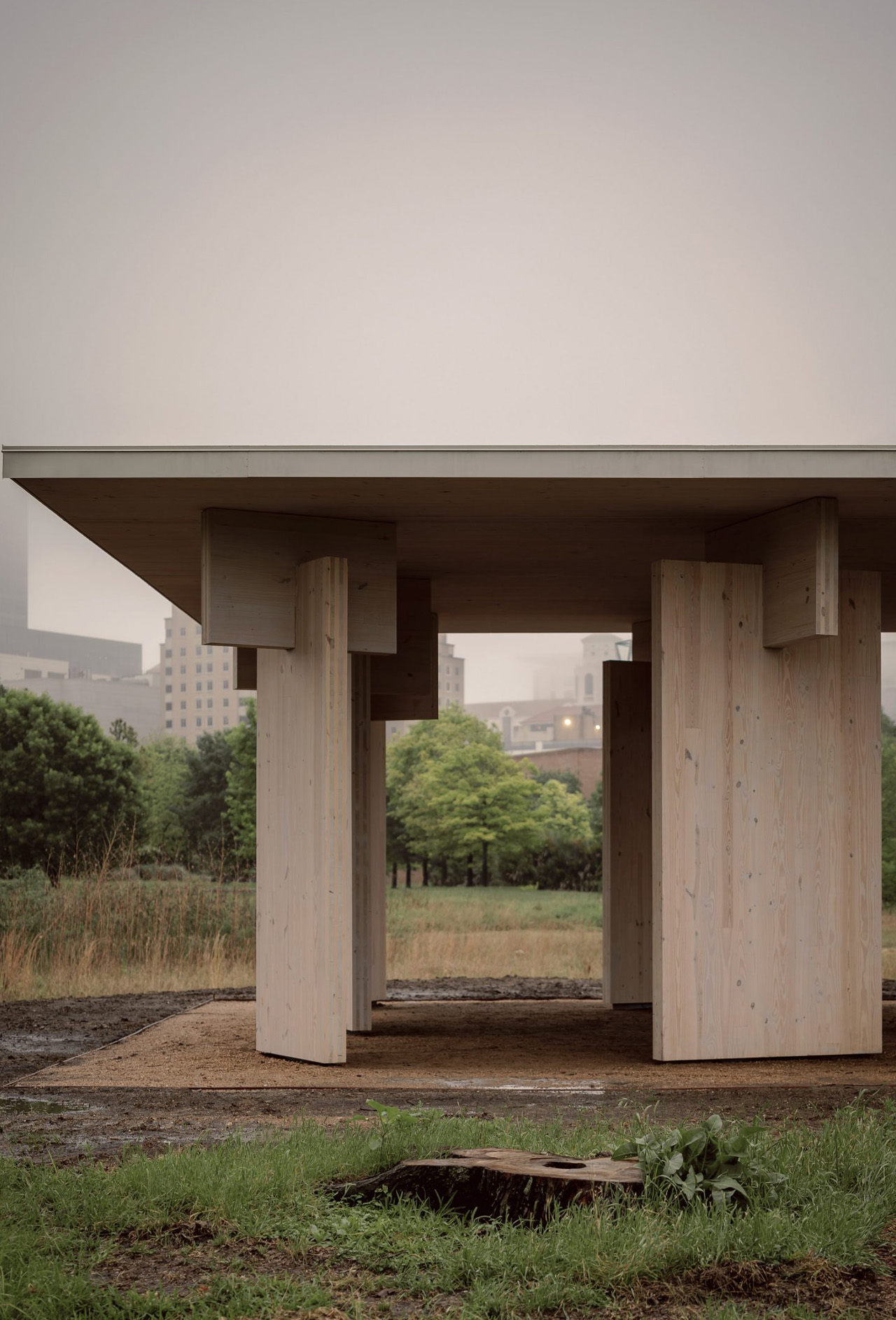
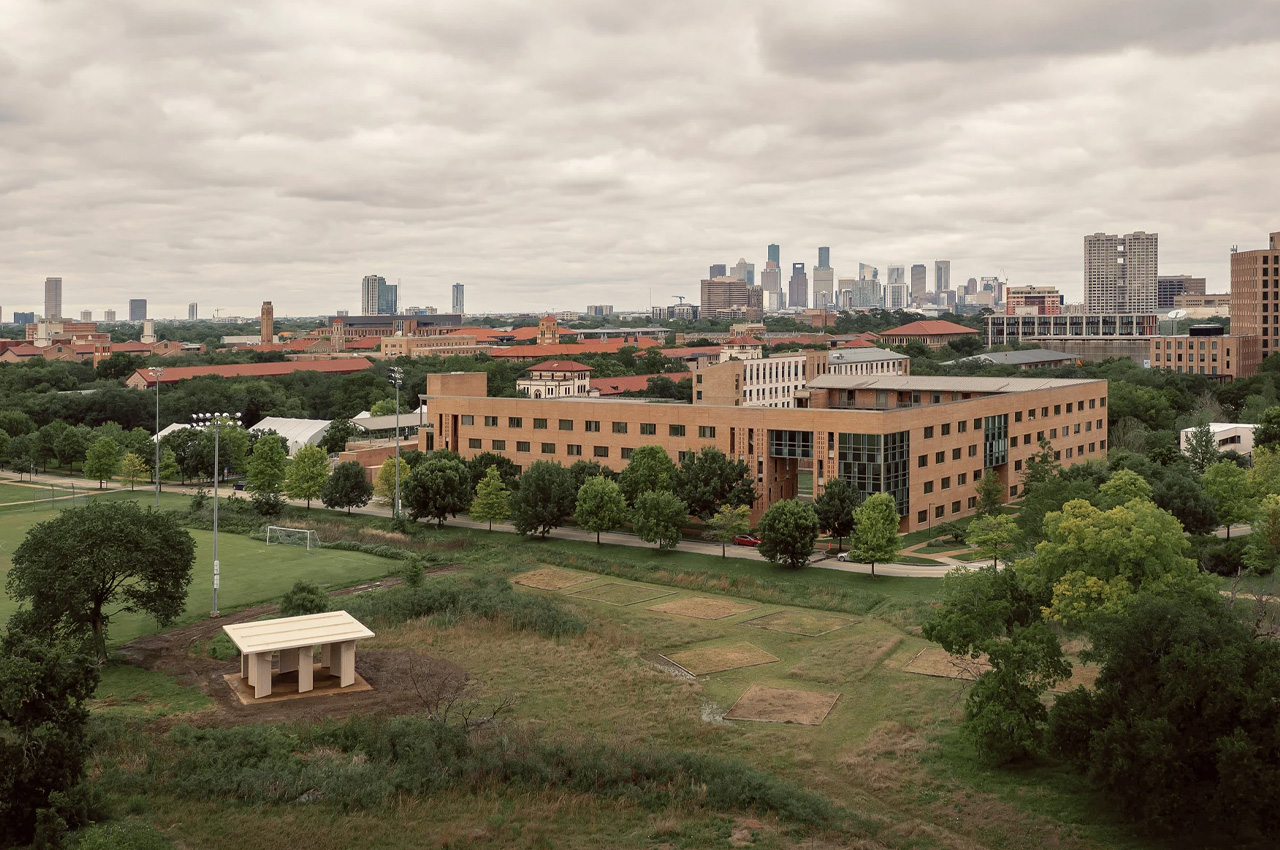
“From the inside, the variable angles work as a sort of camouflage,” said Vassallo. “Creating patterns of light and shadow, minimizing the presence of the people using the pavilion to do bird watching. From the outside, the effect is that of a building that is constantly changing as you walk around it.” Every column is rotated at a different angle altogether, to ensure that privacy is provided to the bird watchers or other people who visit the pavilion. In fact, the pavilion was designed to look like the “ruin of a small temple”.

The pavilion is part of a long-term plan to better manage and take care of the microhabitats of the area which include shrubland, woodland, marsh, and prairie. The pavilion is now a permanent installation on the campus, and students and the public, both can visit it. The pavilion, was in fact, created in a mass timber seminar led by Vassallo and designed with graduate students Pouya Khadem and Lene Sollie and structural engineer Tracy Huynh.





